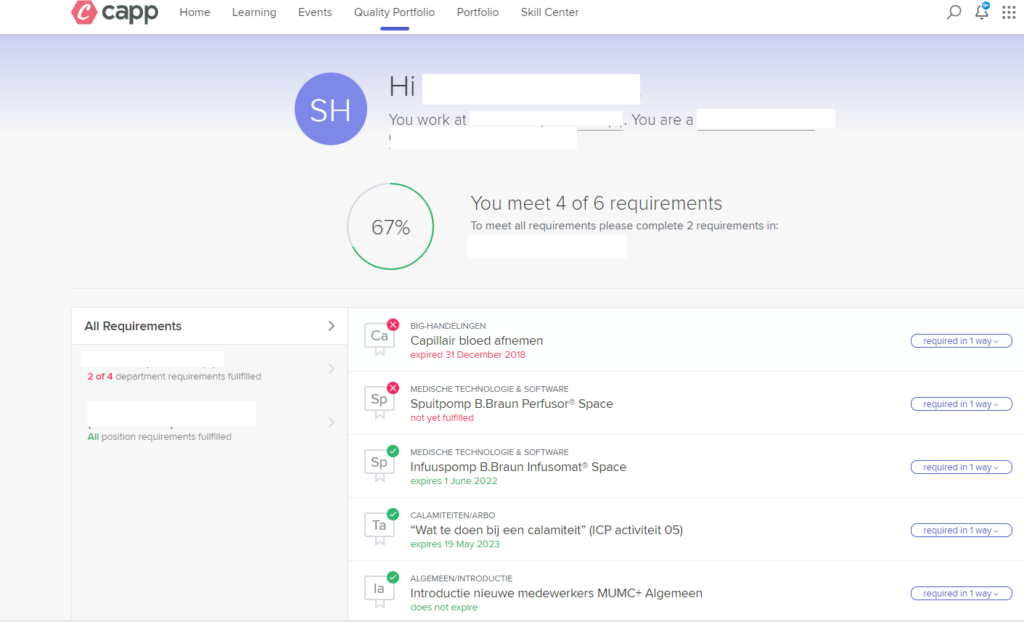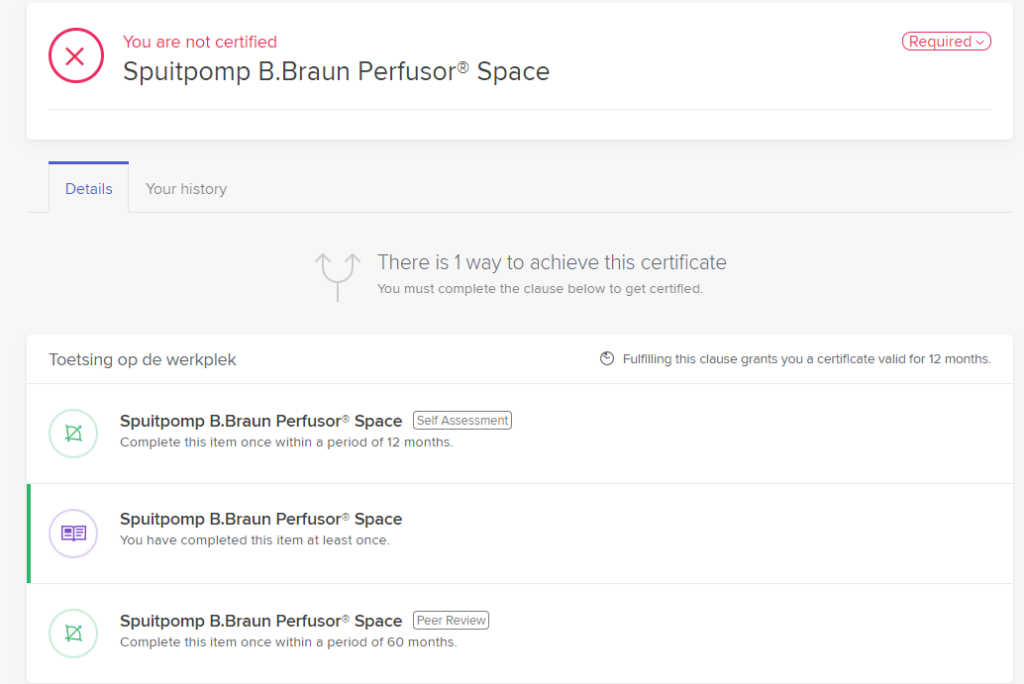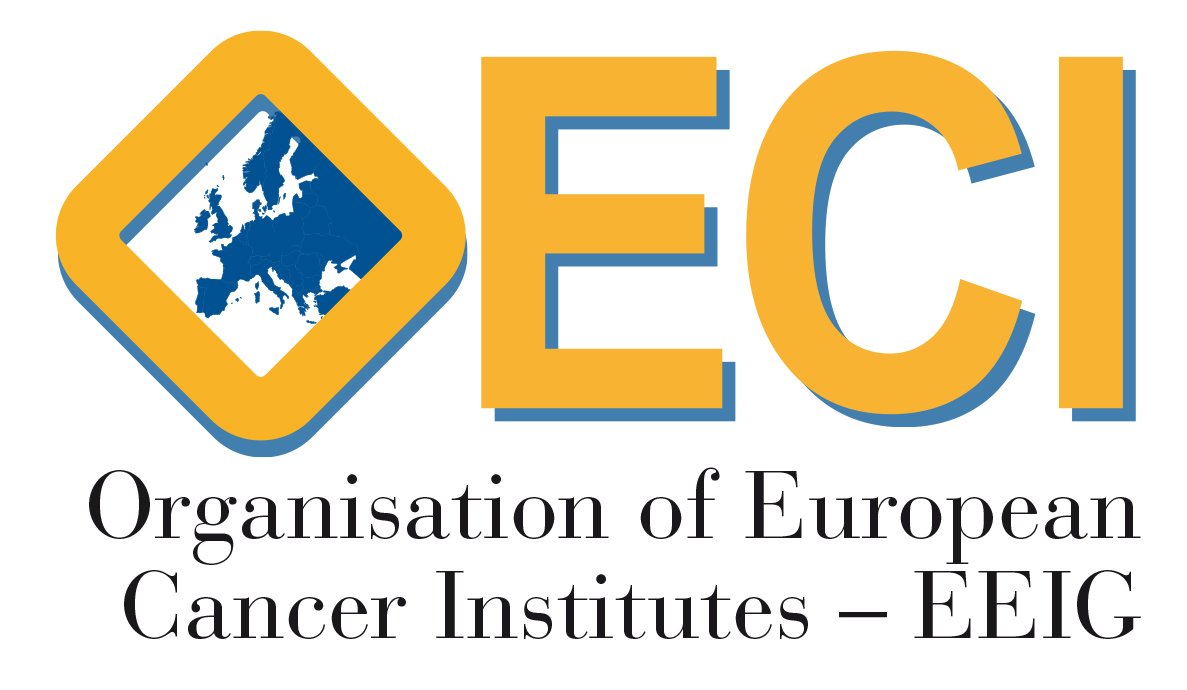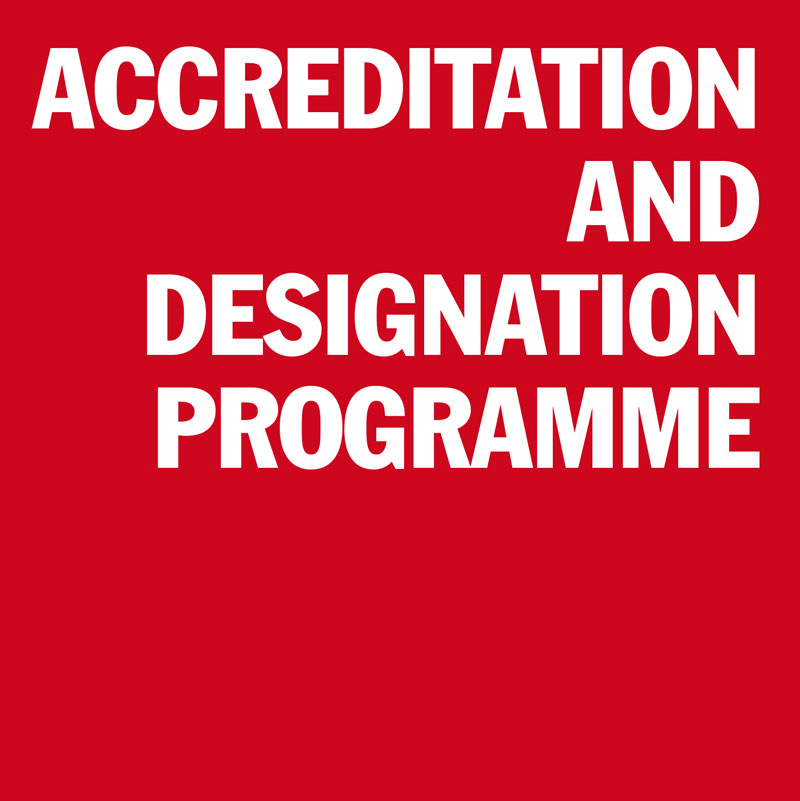Excellent Practices
Training and education system
Practice Category: Training and Education
Centre: Maastricht University Medical Centre
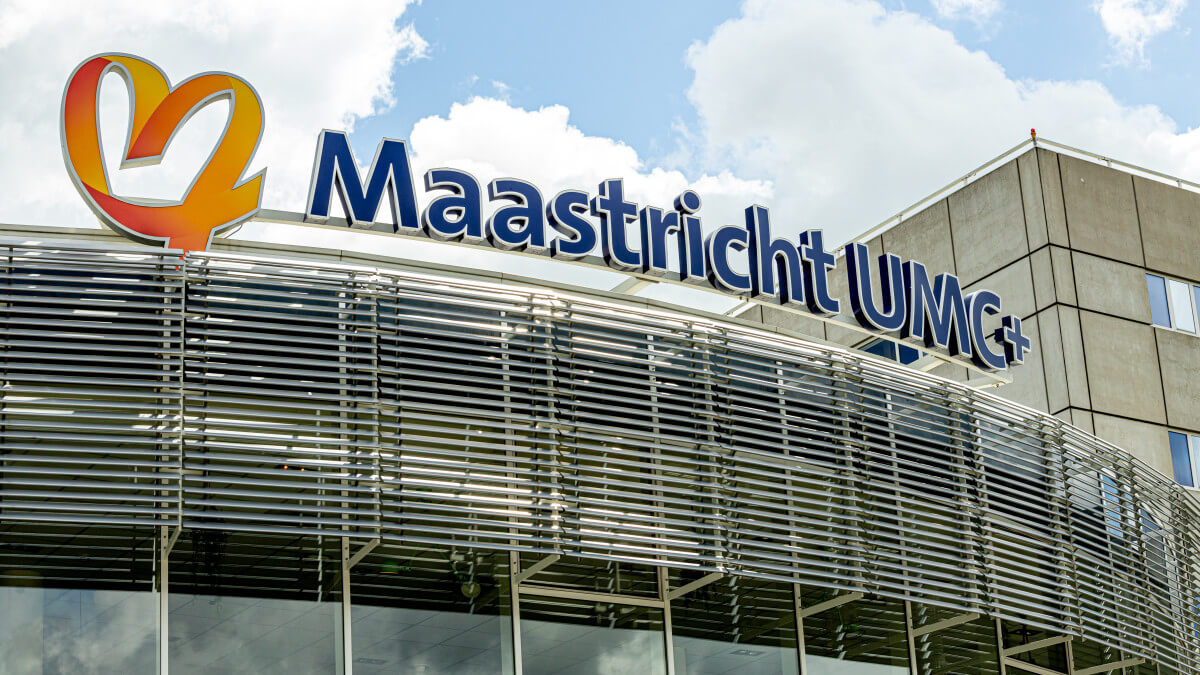
Marja Vermeeren
marja.vermeeren@mumc.nl

Challenge which the practice addresses
There is a challenge to provide a job-specific programme of registration, and specific training and education of nurses, nursing specialists, physician assistants and doctors for high-risk procedures. Due to the covenant of the ‘Safe application of medical technology’ in 2016, the demand for a good and simple registration instrument became increasingly urgent. When applying medical technology, demonstrable competence and expertise are essential prerequisites. An overview of authorised and competent staff was lacking.
Solution
Within the MUMC+ a solution has been found in a digital system, a so-called Quality Passport. Every staff member has an individual Quality Passport, personalised in keeping with their position, with the skills and authorisations related to the registered position. The Quality Passport describes what the staff must comply with in that department with the aim of making the expertise of the individual staff member transparent. The Quality Passport establishes the requirements (i.e. high-risk skills, use of medical equipment) for which the member of staff must demonstrate his or her competence. The progress of the competency registration can be viewed per staff member, per function, per role or per requirement and all at department level. This provides clarity for both staff and management.
Moreover, within the Quality Passport there is a link to the MUMC+ Training Portal enabling the staff to immediately register for a training course. This can be an on-site training, such as Basic Life Support, or a digital training in the form of an e-Learning.
In this way, each staff member can maintain their own authorisation and skills; this being firstly a personal responsibility. In addition, the manager is responsible for the work of the staff member in their department and they monitor the progress in the Quality Passport in the annual assessment.
Impact
An important improvement is the transparency of completed and/or necessary training courses and the current situation with regard to the topicality of competence and expertise linked to profile. In the Quality Passport, staff can immediately see which training is necessary and how he/she can complete this training. Therefore it is clear for the staff member as well as for the manager which training courses must be followed specifically for each position. The current situation is visible at a glance and can be followed via monitoring, as are the training courses that have to be repeated or concerning new requirements.
In the event of expiring certificates, the staff member will receive an email 3 months in advance containing information about the certificates that will expire. In this way they can immediately link to the Quality Passport from the email and arrange registration (self-declaration), plan a peer assessment or register for a course/training via the Education Portal.
Through this Quality Passport a better awareness and sense of ownership has been created for education and training among healthcare professionals.
Critical success factors
- Annual Statements improve staff awareness of their competency levels for their role.
- Another critical success factor is the role of the department manager. If a manager frequently places the quality passport on the agenda within the various consultation situations, the staff then is triggered to take his/her own responsibility.
- Reminders by e-mail regarding the topicality of training courses have also added extra value for the staff and manager, as a result of which training courses can be planned in good time.
- Satisfactory digital support for this training with correct visualization, also contributes to better implementation and acceptance, in the form of a real-time dashboard for staff and managers.
Next steps
Deepening staff ownership is the next step. The current registration system is technically sound and the content will be adapted to the needs of healthcare professionals. Further developments of the Quality Passport are aimed at education and training in the form of ‘clinical reasoning’ in which assessments are performed. These assessments are aimed at testing behaviour and functioning, i.e. especially the practical application of the acquired skills and social competences. Further developments are mainly aimed at more application of digital techniques such as a QR code for training or task support, or the use of Virtual Reality glasses during training activities.
